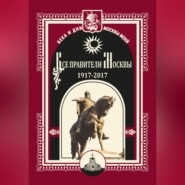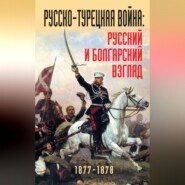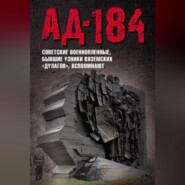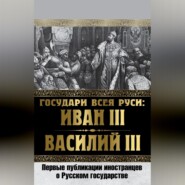По всем вопросам обращайтесь на: info@litportal.ru
(©) 2003-2024.
✖
The Oxford Book of American Essays
Настройки чтения
Размер шрифта
Высота строк
Поля
A soldier needs, besides his soldierly drill,
I. Good Feet.
II. A good Stomach.
III. And after these, come the good Head and the good Heart.
But Good Feet are distinctly the first thing. Without them you cannot get to your duty. If a comrade, or a horse, or a locomotive, takes you on its back to the field, you are useless there. And when the field is lost, you cannot retire, run away, and save your bacon.
Good shoes and plenty of walking make good feet. A man who pretends to belong to an infantry company ought always to keep himself in training, so that any moment he can march twenty or thirty miles without feeling a pang or raising a blister. Was this the case with even a decimation of the army who rushed to defend Washington? Were you so trained, my comrades of the Seventh?
A captain of a company, who will let his men march with such shoes as I have seen on the feet of some poor fellows in this war, ought to be garroted with shoe-strings, or at least compelled to play Pope and wash the feet of the whole army of the Apostles of Liberty.
If you find a foot-soldier lying beat out by the roadside, desperate as a sea-sick man, five to one his heels are too high, or his soles too narrow or too thin, or his shoe is not made straight on the inside, so the great toe can spread into its place as he treads.
I am an old walker over Alps across the water, and over Cordilleras, Sierras, Deserts and Prairies at home; I have done my near sixty miles a day without discomfort, – and speaking from large experience, and with painful recollections of the suffering and death I have known for want of good feet on the march, I say to every volunteer: —
Trust in God; BUT KEEP YOUR SHOES EASY!
THE BRIDGE
When the frenzy of the brief tempest was over, it began to be a question, "What to do about the broken bridge?" The gap was narrow; but even Charles Homans could not promise to leap the "J. H. Nicholson" over it. Who was to be our Julius Cæsar in bridge-building? Who but Sergeant Scott, Armorer of the Regiment, with my fellow-sentry of the morning, Bonnell, as First Assistant?
Scott called for a working party. There were plenty of handy fellows among our Engineers and in the Line. Tools were plenty in the Engineers' chest. We pushed the platform car upon which howitzer No. 1 was mounted down to the gap, and began operations.
"I wish," says the petit caporal of the Engineer Company, patting his howitzer gently on the back, "that I could get this Putty Blower pointed at the enemy, while you fellows are bridge-building."
The inefficient destructives of Maryland had only half spoilt the bridge. Some of the old timbers could be used, – and for new ones, there was the forest.
Scott and his party made a good and a quick job of it. Our friends of the Massachusetts Eighth had now come up. They lent a ready hand, as usual. The sun set brilliantly. By twilight there was a practicable bridge. The engine was dispatched back to keep the road open. The two platform cars, freighted with our howitzers, were rigged with the gun-ropes for dragging along the rail. We passed through the files of the Massachusetts men, resting by the way, and eating by the fires of the evening the suppers we had in great part provided them; and so begins our night-march.
THE NIGHT-MARCH
O GOTTSCHALK! what a poetic Marche de Nuit we then began to play, with our heels and toes, on the railroad track!
It was full-moonlight and the night inexpressibly sweet and serene. The air was cool and vivified by the gust and shower of the afternoon. Fresh spring was in every breath. Our fellows had forgotten that this morning they were hot and disgusted. Everyone hugged his rifle as if it were the arm of the Girl of his Heart, and stepped out gayly for the promenade. Tired or foot-sore men, or even lazy ones, could mount upon the two freight-cars we were using for artillery-wagons. There were stout arms enough to tow the whole.
The scouts went ahead under First Lieutenant Farnham of the Second Company. We were at school together, – I am afraid to say how many years ago. He is just the same cool, dry, shrewd fellow he was as a boy, and a most efficient officer.
It was an original kind of march. I suppose a battery of howitzers never before found itself mounted upon cars, ready to open fire at once and bang away into the offing with shrapnel or into the bushes with canister. Our line extended a half-mile along the track. It was beautiful to stand on the bank above a cutting, and watch the files strike from the shadow of a wood into a broad flame of moonlight, every rifle sparkling up alert as it came forward. A beautiful sight to see the barrels writing themselves upon the dimness, each a silver flash.
By and by, "Halt!" came, repeated along from the front, company after company. "Halt! a rail gone."
It was found without difficulty. The imbeciles who took it up probably supposed we would not wish to wet our feet by searching for it in the dewy grass of the next field. With incredible doltishness they had also left the chairs and spikes beside the track. Bonnell took hold, and in a few minutes had the rail in place and firm enough to pass the engine. Remember, we were not only hurrying on to succor Washington, but opening the only convenient and practicable route between it and the loyal States.
A little farther on, we came to a village, – a rare sight in this scantily peopled region. Here Sergeant Keeler, of our company, the tallest man in the regiment, and one of the handiest, suggested that we should tear up the rails at a turn-out by the station, and so be prepared for chances. So "Out crowbars!" was the word. We tore up and bagged half a dozen rails, with chairs and spikes complete. Here too, some of the engineers found a keg of spikes. This was also bagged and loaded on our cars. We fought the chaps with their own weapons, since they would not meet us with ours.
These things made delay, and by and by there was a long halt, while the Colonel communicated, by orders sounded along the line, with the engine. Homans’s drag was hard after us, bringing our knapsacks and traps.
After I had admired for some time the beauty of our moonlit line, and listened to the orders as they grew or died along the distance, I began to want excitement. Bonnell suggested that he and I should scout up the road and see if any rails were wanting. We traveled along into the quiet night.
A mile ahead of the line we suddenly caught the gleam of a rifle-barrel. "Who goes there?" one of our own scouts challenged smartly.
We had arrived at the nick of time. Three rails were up. Two of them were easily found. The third was discovered by beating the bush thoroughly. Bonnell and I ran back for tools, and returned at full trot with crowbar and sledge on our shoulders. There were plenty of willing hands to help, – too many, indeed, – and with the aid of a huge Massachusetts man we soon had the rail in place.
From this time on we were constantly interrupted. Not a half-mile passed without a rail up. Bonnell was always at the front laying track, and I am proud to say that he accepted me as aide-de-camp. Other fellows, unknown to me in the dark, gave hearty help. The Seventh showed that it could do something else than drill.
At one spot, on a high embankment over standing water, the rail was gone, sunk probably. Here we tried our rails brought from the turn-out. They were too short. We supplemented with a length of plank from our stores. We rolled our cars carefully over. They passed safe. But Homans shook his head. He could not venture a locomotive on that frail stuff. So we lost the society of the "J. H. Nicholson." Next day the Massachusetts commander called for someone to dive in the pool for the lost rail. Plump into the water went a little wiry chap and grappled the rail. "When I come up," says the brave fellow afterwards to me, "our officer out with a twenty-dollar gold-piece and wanted me to take it. 'That a’n’t what I come for,' says I. 'Take it,' says he, 'and share with the others.' 'That a’n’t what they come for,' says I. But I took a big cold," the diver continued, "and I’m condemned hoarse yit," – which was the fact.
Farther on we found a whole length of track torn up, on both sides, sleepers and all, and the same thing repeated with alternations of breaks of single rails. Our howitzer-ropes came into play to hoist and haul. We were not going to be stopped.
But it was becoming a Noche Triste to some of our comrades. We had now marched some sixteen miles. The distance was trifling. But the men had been on their legs pretty much all day and night. Hardly anyone had had any full or substantial sleep or meal since we started from New York. They napped off, standing, leaning on their guns, dropping down in their tracks on the wet ground, at every halt. They were sleepy, but plucky. As we passed through deep cuttings, places, as it were, built for defense, there was a general desire that the tedium of the night should be relieved by a shindy.
During the whole night I saw our officers moving about the line, doing their duty vigorously, despite exhaustion, hunger and sleeplessness.
About midnight our friends of the Eighth had joined us, and our whole little army struggled on together. I find that I have been rather understating the troubles of the march. It seems impossible that such difficulty could be encountered within twenty miles of the capital of our nation. But we were making a rush to put ourselves in that capital, and we could not proceed in the slow, systematic way of an advancing army. We must take the risk and stand the suffering, whatever it was. So the Seventh Regiment went through its bloodless Noche Triste.
MORNING
At last we issued from the damp woods, two miles below the railroad junction. Here was an extensive farm. Our vanguard had halted and borrowed a few rails to make fires. These were, of course, carefully paid for at their proprietor’s own price. The fires were bright in the gray dawn. About them the whole regiment was now halted. The men tumbled down to catch forty winks. Some, who were hungrier for food than sleep, went off foraging among the farm-houses. They returned with appetizing legends of hot breakfast in hospitable abodes, or scanty fare given grudgingly in hostile ones. All meals, however, were paid for.
Here, as at other halts below, the country-people came up to talk to us. The traitors could easily be distinguished by their insolence disguised as obsequiousness. The loyal men were still timid, but more hopeful at last. All were very lavish with the monosyllable, Sir. It was an odd coincidence, that the vanguard, halting off at a farm in the morning, found it deserted for the moment by its tenants, and protected only by an engraved portrait of our (former) Colonel Duryea, serenely smiling over the mantel-piece.
From this point, the railroad was pretty much all gone. But we were warmed and refreshed by a nap and a bite, and besides had daylight and open country.
We put our guns on their own wheels, all dropped into ranks as if on parade, and marched the last two miles to the station. We still had no certain information. Until we actually saw the train awaiting us, and the Washington companies, who had come down to escort us, drawn up, we did not know whether our Uncle Sam was still a resident of the capital.
We packed into the train, and rolled away to Washington.
WASHINGTON
We marched up to the White House, showed ourselves to the President, made our bow to him as our host, and then marched up to the Capitol, our grand lodgings.
There we are now, quartered in the Representatives’ Chamber.
And here I must hastily end this first sketch of the Great Defense. May it continue to be as firm and faithful as it is this day!
I have scribbled my story with a thousand men stirring about me. If any of my sentences miss their aim, accuse my comrades and the bewilderment of this martial crowd. For here are four or five thousand others on the same business as ourselves, and drums are beating, guns are clanking, companies are tramping, all the while. Our friends of the Eighth Massachusetts are quartered under the dome, and cheer us whenever we pass.
Desks marked John Covode, John Cochran, and Anson Burlingame have allowed me to use them as I wrote.
CALVIN
A STUDY OF CHARACTER
CHARLES DUDLEY WARNER
CALVIN is dead. His life, long to him, but short for the rest of us, was not marked by startling adventures, but his character was so uncommon and his qualities were so worthy of imitation, that I have been asked by those who personally knew him to set down my recollections of his career.
I. Good Feet.
II. A good Stomach.
III. And after these, come the good Head and the good Heart.
But Good Feet are distinctly the first thing. Without them you cannot get to your duty. If a comrade, or a horse, or a locomotive, takes you on its back to the field, you are useless there. And when the field is lost, you cannot retire, run away, and save your bacon.
Good shoes and plenty of walking make good feet. A man who pretends to belong to an infantry company ought always to keep himself in training, so that any moment he can march twenty or thirty miles without feeling a pang or raising a blister. Was this the case with even a decimation of the army who rushed to defend Washington? Were you so trained, my comrades of the Seventh?
A captain of a company, who will let his men march with such shoes as I have seen on the feet of some poor fellows in this war, ought to be garroted with shoe-strings, or at least compelled to play Pope and wash the feet of the whole army of the Apostles of Liberty.
If you find a foot-soldier lying beat out by the roadside, desperate as a sea-sick man, five to one his heels are too high, or his soles too narrow or too thin, or his shoe is not made straight on the inside, so the great toe can spread into its place as he treads.
I am an old walker over Alps across the water, and over Cordilleras, Sierras, Deserts and Prairies at home; I have done my near sixty miles a day without discomfort, – and speaking from large experience, and with painful recollections of the suffering and death I have known for want of good feet on the march, I say to every volunteer: —
Trust in God; BUT KEEP YOUR SHOES EASY!
THE BRIDGE
When the frenzy of the brief tempest was over, it began to be a question, "What to do about the broken bridge?" The gap was narrow; but even Charles Homans could not promise to leap the "J. H. Nicholson" over it. Who was to be our Julius Cæsar in bridge-building? Who but Sergeant Scott, Armorer of the Regiment, with my fellow-sentry of the morning, Bonnell, as First Assistant?
Scott called for a working party. There were plenty of handy fellows among our Engineers and in the Line. Tools were plenty in the Engineers' chest. We pushed the platform car upon which howitzer No. 1 was mounted down to the gap, and began operations.
"I wish," says the petit caporal of the Engineer Company, patting his howitzer gently on the back, "that I could get this Putty Blower pointed at the enemy, while you fellows are bridge-building."
The inefficient destructives of Maryland had only half spoilt the bridge. Some of the old timbers could be used, – and for new ones, there was the forest.
Scott and his party made a good and a quick job of it. Our friends of the Massachusetts Eighth had now come up. They lent a ready hand, as usual. The sun set brilliantly. By twilight there was a practicable bridge. The engine was dispatched back to keep the road open. The two platform cars, freighted with our howitzers, were rigged with the gun-ropes for dragging along the rail. We passed through the files of the Massachusetts men, resting by the way, and eating by the fires of the evening the suppers we had in great part provided them; and so begins our night-march.
THE NIGHT-MARCH
O GOTTSCHALK! what a poetic Marche de Nuit we then began to play, with our heels and toes, on the railroad track!
It was full-moonlight and the night inexpressibly sweet and serene. The air was cool and vivified by the gust and shower of the afternoon. Fresh spring was in every breath. Our fellows had forgotten that this morning they were hot and disgusted. Everyone hugged his rifle as if it were the arm of the Girl of his Heart, and stepped out gayly for the promenade. Tired or foot-sore men, or even lazy ones, could mount upon the two freight-cars we were using for artillery-wagons. There were stout arms enough to tow the whole.
The scouts went ahead under First Lieutenant Farnham of the Second Company. We were at school together, – I am afraid to say how many years ago. He is just the same cool, dry, shrewd fellow he was as a boy, and a most efficient officer.
It was an original kind of march. I suppose a battery of howitzers never before found itself mounted upon cars, ready to open fire at once and bang away into the offing with shrapnel or into the bushes with canister. Our line extended a half-mile along the track. It was beautiful to stand on the bank above a cutting, and watch the files strike from the shadow of a wood into a broad flame of moonlight, every rifle sparkling up alert as it came forward. A beautiful sight to see the barrels writing themselves upon the dimness, each a silver flash.
By and by, "Halt!" came, repeated along from the front, company after company. "Halt! a rail gone."
It was found without difficulty. The imbeciles who took it up probably supposed we would not wish to wet our feet by searching for it in the dewy grass of the next field. With incredible doltishness they had also left the chairs and spikes beside the track. Bonnell took hold, and in a few minutes had the rail in place and firm enough to pass the engine. Remember, we were not only hurrying on to succor Washington, but opening the only convenient and practicable route between it and the loyal States.
A little farther on, we came to a village, – a rare sight in this scantily peopled region. Here Sergeant Keeler, of our company, the tallest man in the regiment, and one of the handiest, suggested that we should tear up the rails at a turn-out by the station, and so be prepared for chances. So "Out crowbars!" was the word. We tore up and bagged half a dozen rails, with chairs and spikes complete. Here too, some of the engineers found a keg of spikes. This was also bagged and loaded on our cars. We fought the chaps with their own weapons, since they would not meet us with ours.
These things made delay, and by and by there was a long halt, while the Colonel communicated, by orders sounded along the line, with the engine. Homans’s drag was hard after us, bringing our knapsacks and traps.
After I had admired for some time the beauty of our moonlit line, and listened to the orders as they grew or died along the distance, I began to want excitement. Bonnell suggested that he and I should scout up the road and see if any rails were wanting. We traveled along into the quiet night.
A mile ahead of the line we suddenly caught the gleam of a rifle-barrel. "Who goes there?" one of our own scouts challenged smartly.
We had arrived at the nick of time. Three rails were up. Two of them were easily found. The third was discovered by beating the bush thoroughly. Bonnell and I ran back for tools, and returned at full trot with crowbar and sledge on our shoulders. There were plenty of willing hands to help, – too many, indeed, – and with the aid of a huge Massachusetts man we soon had the rail in place.
From this time on we were constantly interrupted. Not a half-mile passed without a rail up. Bonnell was always at the front laying track, and I am proud to say that he accepted me as aide-de-camp. Other fellows, unknown to me in the dark, gave hearty help. The Seventh showed that it could do something else than drill.
At one spot, on a high embankment over standing water, the rail was gone, sunk probably. Here we tried our rails brought from the turn-out. They were too short. We supplemented with a length of plank from our stores. We rolled our cars carefully over. They passed safe. But Homans shook his head. He could not venture a locomotive on that frail stuff. So we lost the society of the "J. H. Nicholson." Next day the Massachusetts commander called for someone to dive in the pool for the lost rail. Plump into the water went a little wiry chap and grappled the rail. "When I come up," says the brave fellow afterwards to me, "our officer out with a twenty-dollar gold-piece and wanted me to take it. 'That a’n’t what I come for,' says I. 'Take it,' says he, 'and share with the others.' 'That a’n’t what they come for,' says I. But I took a big cold," the diver continued, "and I’m condemned hoarse yit," – which was the fact.
Farther on we found a whole length of track torn up, on both sides, sleepers and all, and the same thing repeated with alternations of breaks of single rails. Our howitzer-ropes came into play to hoist and haul. We were not going to be stopped.
But it was becoming a Noche Triste to some of our comrades. We had now marched some sixteen miles. The distance was trifling. But the men had been on their legs pretty much all day and night. Hardly anyone had had any full or substantial sleep or meal since we started from New York. They napped off, standing, leaning on their guns, dropping down in their tracks on the wet ground, at every halt. They were sleepy, but plucky. As we passed through deep cuttings, places, as it were, built for defense, there was a general desire that the tedium of the night should be relieved by a shindy.
During the whole night I saw our officers moving about the line, doing their duty vigorously, despite exhaustion, hunger and sleeplessness.
About midnight our friends of the Eighth had joined us, and our whole little army struggled on together. I find that I have been rather understating the troubles of the march. It seems impossible that such difficulty could be encountered within twenty miles of the capital of our nation. But we were making a rush to put ourselves in that capital, and we could not proceed in the slow, systematic way of an advancing army. We must take the risk and stand the suffering, whatever it was. So the Seventh Regiment went through its bloodless Noche Triste.
MORNING
At last we issued from the damp woods, two miles below the railroad junction. Here was an extensive farm. Our vanguard had halted and borrowed a few rails to make fires. These were, of course, carefully paid for at their proprietor’s own price. The fires were bright in the gray dawn. About them the whole regiment was now halted. The men tumbled down to catch forty winks. Some, who were hungrier for food than sleep, went off foraging among the farm-houses. They returned with appetizing legends of hot breakfast in hospitable abodes, or scanty fare given grudgingly in hostile ones. All meals, however, were paid for.
Here, as at other halts below, the country-people came up to talk to us. The traitors could easily be distinguished by their insolence disguised as obsequiousness. The loyal men were still timid, but more hopeful at last. All were very lavish with the monosyllable, Sir. It was an odd coincidence, that the vanguard, halting off at a farm in the morning, found it deserted for the moment by its tenants, and protected only by an engraved portrait of our (former) Colonel Duryea, serenely smiling over the mantel-piece.
From this point, the railroad was pretty much all gone. But we were warmed and refreshed by a nap and a bite, and besides had daylight and open country.
We put our guns on their own wheels, all dropped into ranks as if on parade, and marched the last two miles to the station. We still had no certain information. Until we actually saw the train awaiting us, and the Washington companies, who had come down to escort us, drawn up, we did not know whether our Uncle Sam was still a resident of the capital.
We packed into the train, and rolled away to Washington.
WASHINGTON
We marched up to the White House, showed ourselves to the President, made our bow to him as our host, and then marched up to the Capitol, our grand lodgings.
There we are now, quartered in the Representatives’ Chamber.
And here I must hastily end this first sketch of the Great Defense. May it continue to be as firm and faithful as it is this day!
I have scribbled my story with a thousand men stirring about me. If any of my sentences miss their aim, accuse my comrades and the bewilderment of this martial crowd. For here are four or five thousand others on the same business as ourselves, and drums are beating, guns are clanking, companies are tramping, all the while. Our friends of the Eighth Massachusetts are quartered under the dome, and cheer us whenever we pass.
Desks marked John Covode, John Cochran, and Anson Burlingame have allowed me to use them as I wrote.
CALVIN
A STUDY OF CHARACTER
CHARLES DUDLEY WARNER
CALVIN is dead. His life, long to him, but short for the rest of us, was not marked by startling adventures, but his character was so uncommon and his qualities were so worthy of imitation, that I have been asked by those who personally knew him to set down my recollections of his career.

















